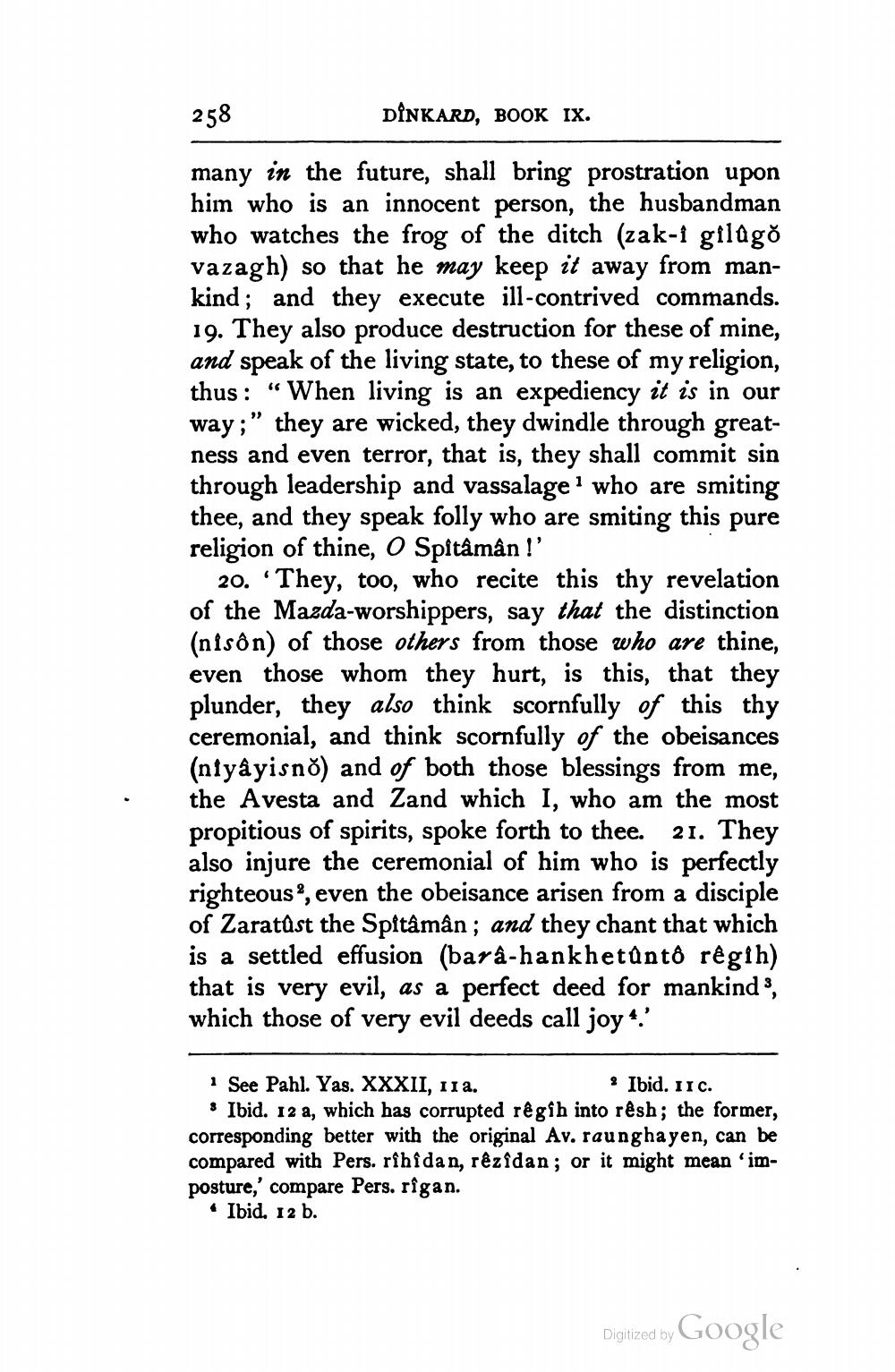________________
258
DÎNKARD, BOOK IX.
many in the future, shall bring prostration upon him who is an innocent person, the husbandman who watches the frog of the ditch (zak-i gilago vazagh) so that he may keep it away from mankind; and they execute ill-contrived commands. 19. They also produce destruction for these of mine, and speak of the living state, to these of my religion, thus: “When living is an expediency it is in our way;" they are wicked, they dwindle through greatness and even terror, that is, they shall commit sin through leadership and vassalage? who are smiting thee, and they speak folly who are smiting this pure religion of thine, O Spitâmân!'
20. “They, too, who recite this thy revelation of the Mazda-worshippers, say that the distinction (nisôn) of those others from those who are thine, even those whom they hurt, is this, that they plunder, they also think scornfully of this thy ceremonial, and think scornfully of the obeisances (ntykyisno) and of both those blessings from me, the Avesta and Zand which I, who am the most propitious of spirits, spoke forth to thee. 21. They also injure the ceremonial of him who is perfectly righteous, even the obeisance arisen from a disciple of Zaratust the Spitâmân; and they chant that which is a settled effusion (barà-hankhetuntô rêgih) that is very evil, as a perfect deed for mankind 3, which those of very evil deeds call joy 4.'
1 See Pahl. Yas. XXXII, 11a.
Ibid. II C. Ibid. 12 a, which has corrupted rêgih into resh; the former, corresponding better with the original Av. raunghayen, can be compared with Pers. rihidan, rêzîdan; or it might mean 'imposture,' compare Pers. rîgan.
• Ibid. 12 b.
Digitized by Google




